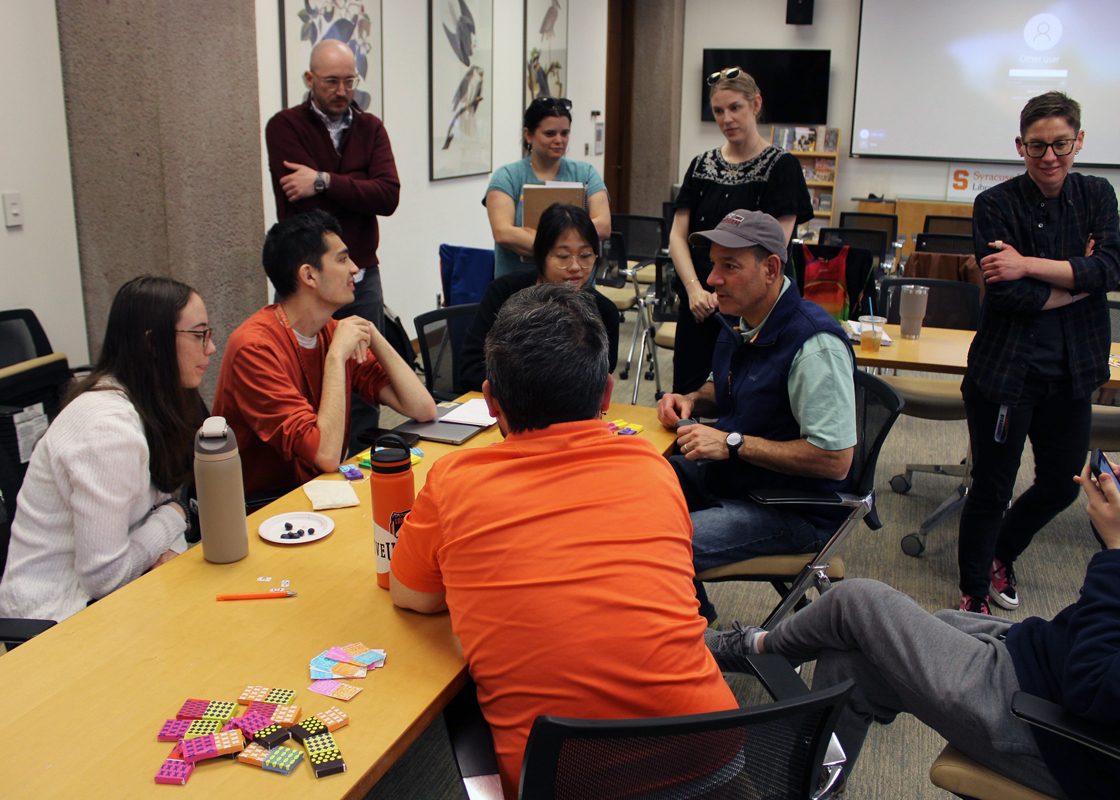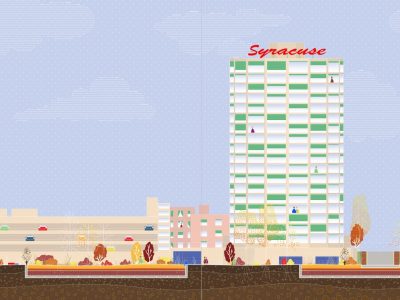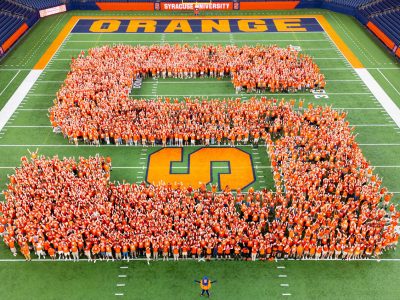Intelligence++ Holds Inclusive Design Spring Showcase
The cross-campus Intelligence++ initiative held its inclusive design showcase on April 29 in Bird Library. A collaboration between Blackstone LaunchPad at Syracuse Libraries, the College of Visual and Performing Arts’ (VPA) School of Design, and the Taishoff Center for Inclusive Higher Education, Intelligence++ is an interdisciplinary initiative focused on inclusive entrepreneurship, design and community.
The initiative is open to both undergraduate and graduate students across the University, including students with intellectual disability from InclusiveU, an initiative from the Taishoff Center for Inclusive Higher Education.
Hosted by Brittany Berry, instructor in the School of Design, the showcase was joined remotely by Gianfranco Zaccai ’70, H’09, co-founder and chief designer of Continuum Innovation, who founded Intelligence++ through his Zaccai Foundation for Augmented Intelligence.
The following projects were showcased:
TextPal
Carter Rice ’25 (VPA) and Julia Weinreich ’26 (VPA)
-A peer mentorship app connecting high school students with college students who share similar disability experiences to provide academic, social, and emotional guidance; build community and reduce isolation; and foster long-term support networks and mentorship.
Mayhem MatchUp
Matthew Pass ’26 (College of Arts and Sciences), Dan Zarro ’28 (InclusiveU) and Pinyi Wang ’26 (VPA)
-An inclusive, intuitive board game aimed at developmentally disabled players that has potential both as entertainment and as a tool for recreational therapists.
Sensory ToolKits
Isaac Munce ’28 (VPA) and Andrew Baum ’28 (InclusiveU)
-Build-your-own sensory calming kits that help build “calm, confidence and community for a world that too often forgets sensory needs.”
Solace
Aidan Turner ’25 (School of Architecture), Lucas d’Oelsnitz ’25 (Martin J. Whitman School of Management), Carolyn Fernandes ’25 (VPA) and Aphrodite Gioulekas ’25 (VPA)
-A design company addressing physical discomfort, sensory overload, cognitive disruption and social confidence for neurodivergent individuals through inclusive clothing options. Prototype clothing includes concealed and participatory fidgeting features, clasping cuffs and light and airy (not scratchy) fabrics.


